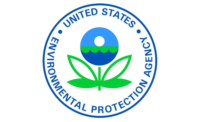The U.S. federal government is diving into the world of citizen science and scientific crowdsourcing with its new CitizenScience.gov website.
The General Services Administration launched the website at the direction of John Holdren, director of the Office of Science and Technology Policy, who issued a memo (pdf) in September outlining how the federal government can address "societal and scientific challenges through citizen science and crowdsourcing."
CitizenScience.gov should facilitate collaboration between federal agencies as well as solicit help from the public to tackle critical science and technology issues, according to an announcement on the GSA's DigitalGov website. The announcement compared the new website with Challenge.gov, which solicits proposals from the public to solve various governmental challenges.
The three main features of CitizenScience.gov are:
- A catalog of federally funded projects
- A crowdsourcing and citizen science toolkit including how-to process steps, case studies, a resource library and resources on legal and policy issues
- A community of nearly 300 federal practitioners who can help the public coordinate with the federal government on projects and ideas
Agencies can use the site to advertise projects and find citizen scientists and other experts to help, according to the GSA.
In his memo, Holdren said citizen scientists address real-world problems by formulating research questions, conducting experiments, collecting and analyzing data and interpreting results, and developing technologies and applications for the public good. Crowdsourcing involves a large group of individuals providing expertise for online, distributed problem solving, he added.
About CitizenScience.gov
Citizenscience.gov is an official government website designed to accelerate the use of crowdsourcing and citizen science across the U.S. government. The site provides a portal to three key components: a catalog of federally supported citizen science projects, a toolkit to assist federal practitioners with designing and maintaining their projects, and a gateway to a community of hundreds of citizen science practitioners and coordinators across government.
Citizen Science: Helping federal agencies accelerate innovation through public participation
Through citizen science and crowdsourcing, the federal government and nongovernmental organizations can engage the American public in addressing societal needs and accelerating science, technology, and innovation.
In citizen science, the public participates voluntarily in the scientific process, addressing real-world problems in ways that may include formulating research questions, conducting scientific experiments, collecting and analyzing data, interpreting results, making new discoveries, developing technologies and applications, and solving complex problems. In crowdsourcing, organizations submit an open call for voluntary assistance from a large group of individuals for online, distributed problem solving.
Citizenscience.gov was developed under a partnership between the U.S. General Services Administration (GSA) and the Woodrow Wilson International Center for Scholars (Wilson Center), a Trust Instrumentality of the U.S. government. It provides a three-part mechanism through which federal employees can collaborate to unlock the power of citizen science:
The Catalog: This database, developed in response to a memorandum from the White House Office of Science and Technology Policy (OSTP) to the heads of federal departments and agencies — Addressing Societal and Scientific Challenges through Citizen Science and Crowdsourcing — provides a government-wide listing of citizen science and crowdsourcing projects by agency. It is designed to improve cross-agency collaboration, reveal opportunities for new and high-impact projects, and make it easier for volunteers to find projects in which they can participate. Projects submitted to the catalog are validated for agency involvement by federal employees.
The Toolkit: The Federal Crowdsourcing and Citizen Science Toolkit, released in September 2015, provides five basic process steps for planning, designing and carrying out a crowdsourcing or citizen science project to help federal employees use crowdsourcing and citizen science to advance the missions of their agencies. The toolkit also provides case studies, models, and other resources, including success stories and some of the challenges that developers faced in designing and carrying out citizen science and crowdsourcing projects. The case studies can serve as models for federal employees inspired to carry out their own projects. The toolkit was developed with the support and collaboration of more than 25 federal agencies in collaboration with OSTP, the Federal Crowdsourcing and Citizen Science Community of Practice (CCS), and GSA’s Open Opportunities Program.
Federal Communities: The growing Federal Crowdsourcing and Citizen Science Community of Practice (CCS) represents a group of hundreds of federal employees representing 35 agencies who meet regularly to share lessons learned and develop best practices for crowdsourcing and citizen science. A second, overlapping community is the citizen science agency coordinators that were appointed as a result of OSTP’s 2015 memo, Addressing Societal and Scientific Challenges through Citizen Science and Crowdsourcing.




